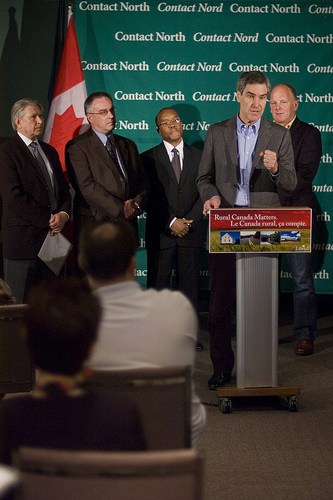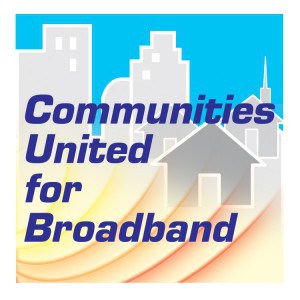(The Liberal Party is sponsoring an online town hall meeting this afternoon at 3:30PM EDT on the issue of expanding broadband in rural Canada. Why not join in and demand that Michael Ignatieff commit to reforming the Canadian Radio-television and Telecommunications Commission, which has landed Canada in a real broadband mess filled with Net Neutrality violations and Internet Overcharging schemes like usage caps and consumption billing. The CRTC has been so submissive to Canadian telecom, they might as well be their trade association.
Tell him rural broadband expansion doesn’t do much good if the existing providers, which got Canada into this mess, are still in charge of running it. Real broadband reform requires a government committed to universal broadband that works for Canadians and doesn’t simply profit from them. Demand Net Neutrality commitments from the Liberal Party and an end to overcharging schemes. Universal broadband doesn’t mean much to Canada if Canadians can’t use it without fear of overlimit fees and enormous bills at the end of the month. — Phillip Dampier)
The Liberal Party of Canada has promised rural Canadians they will not be left behind the digital online revolution, unveiling a promise Tuesday to deliver universal broadband access to all Canadians within three years of taking office.
Michael Ignatieff, Liberal leader made the commitment as part of a series of planks the party introduced under its “Rural Canada Matters” platform to attract support from rural Canadians, who tend to vote Conservative.
“Too many rural communities can’t get access to essential services, because we don’t have the digital infrastructure to deliver them,” said Ignatieff. “That’s why I’m committing a future Liberal government to 100 percent high-speed Internet for every rural, remote and Northern community in our country.”
According to Ignatieff, using proceeds from a 2011 wireless spectrum auction, a Liberal government would invest to achieve an interim target of 100 percent high-speed Internet connectivity of at least 1.5 Mbps. A Liberal government would also seek to set a more ambitious goal for 2017, Canada’s 150th anniversary as a country.
The Liberals blasted the incumbent Conservatives for breaking their promise to deliver rural broadband to Canadians.
In 2006, Canada’s Telecommunications Review Panel recommended the federal government achieve 100% high-speed Internet connectivity by 2010. This goal was not achieved under the Conservative government. According to the CRTC, in 2009 close to 800,000 Canadian households still did could not access high-speed Internet – or 20% of all rural Canadians. At the turn of the century, Canada ranked second in the world in Internet connectivity, but has now fallen to tenth place.
Ignatieff announced the plan in Thunder Bay, Ontario at an Internet access center run by Contact North. He characterized the current state of broadband in Canada as threatening the country’s economic competitiveness and quality of life for rural residents.
“While railways and highways were the essential infrastructure of the 20th century, fiber optic lines, satellites and wireless towers, are the digital infrastructure needed to connect our communities and strengthen our economy in the 21st century,” said Liberal Rural Caucus Chair Mark Eyking, “In all regions of Canada, families and businesses depend on access to the Internet and mobile phone coverage.”
New Democratic Party (NDP) MP Bruce Hyer (Thunder Bay-Superior North) praised the Liberal plan.

The Liberal Party is trying to capture an increased share of traditional Conservative Party supporters with a rural-focused agenda
“Obviously, country-wide broadband is a good idea,” Hyer told The Chronicle-Journal newspaper in Thunder Bay. “And there should be virtually no community of any size in Canada, and nowhere along the Trans-Canada, for sure, that we don‘t have high-quality mobile phone access and service. The United States has those things, and we should have them, too.”
But NDP MP John Rafferty (Thunder Bay-Rainy River) told the newspaper he’s heard it all before.
“Liberals have been talking about rural broadband access for a decade now,” he said. “The interesting thing is that he says rural Canada matters. But clearly it hasn’t mattered to Liberals for a long time, or else we would’ve had broadband. They had a chance to do this. What they’re doing is regurgitating old promises.”
Rafferty said the Liberals first brought it up in 2001, and said then it would cost $4 billion.
“I’m not sure where he comes up with ($500 million).”
Another concern for the Liberal Party plan is the fact it relies entirely on private providers to deliver the service, something they have refused to provide many rural Canadians thus far. In effect, the government would transfer $500 million dollars earned from large telecommunications companies buying additional spectrum and then hand it all back to those same companies to construct slow speed broadband services they can then profit from.
While many Canadian officials blame Canada’s large rural expanse for the digital divide, others blame Canada’s broadband providers who have engaged in usage-limiting schemes, increased prices, and throttled the speeds of certain broadband services.
| Country
|
Universal Service Target
|
Target date
|
| US | 4 Mbps | 2020 |
| UK | 2 Mbps | 2012 |
| Canada (Liberal Proposal) | 1.5 Mbps | within 3 years of being elected |
| South Korea | 1 Mbps | Currently available |
| Finland | 1 Mbps | Currently available |
| Ireland | 1 Mbps | 2010 |
| Germany | 1 Mbps | 2010 |
| France | 0.5 Mbps | 2010 |


 Subscribe
Subscribe




